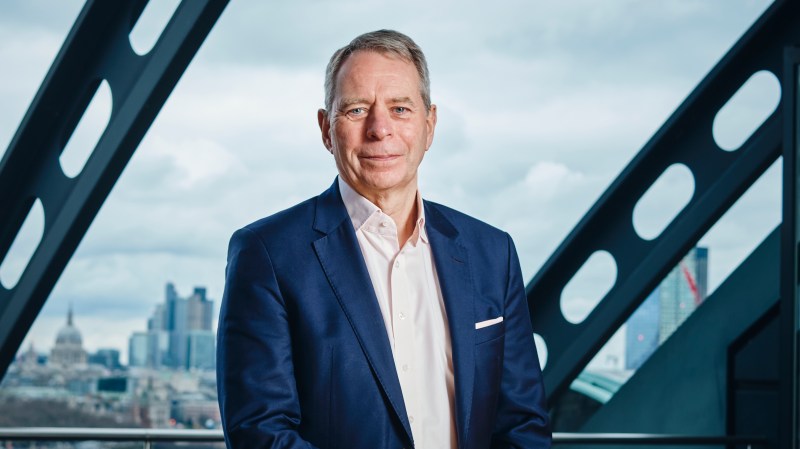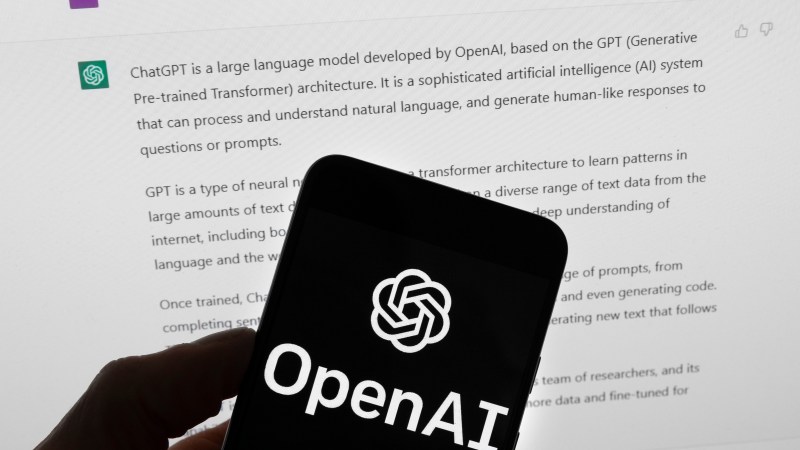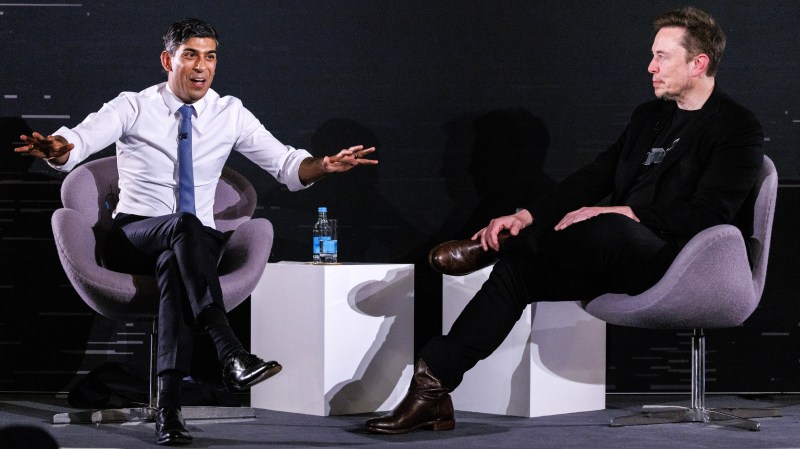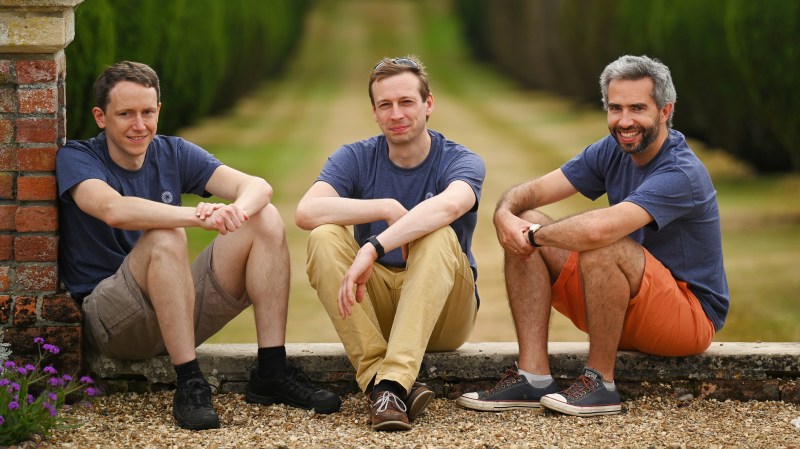PwC boss: I get more energy from being in the office than at home
When Kevin Ellis was starting out as a trainee accountant in the early 1980s, photocopying skills were an important part of the job. “We used to say that in their first year, juniors had to wear sunglasses because they photocopied so much,” he said.
Now, when Ellis tours schools as the UK head of PwC, the country’s largest accounting firm, the potential beancounters of the future are anxious about something else. “The one question I get asked by every single school group is: ‘What does artificial intelligence mean for my job?’”
Despite leading the firm for eight years, Ellis is still unsure of the answer. “Nobody’s got a crystal ball,” he says. PwC may have to hire fewer people in the long term, he adds, but AI is already eliminating the menial tasks he cut his teeth on all those years ago. “[Accounting] will be less boring,” says Ellis, in an accent that still carries the trace of his upbringing in Essex.
Ellis’s views on the job market matter — PwC employs 26,000 people in the UK and is one of the country’s top graduate recruiters, hiring 1,500 people out of university every year. Sitting in PwC’s vast office above London’s Charing Cross station, Ellis is in a reflective mood as he prepares to leave the firm he joined as a graduate from Nottingham University in 1984.
Ellis is 60, the age at which PwC boots out its partners to make way for fresh blood, meaning that he has prepared for this moment for most of his professional life. “The good thing about this job is you’ve always known your exit date,” he said.
As his 1057 partners prepare to elect a successor, Ellis reflects on his time at the helm of the largest of the Big Four firms, alongside KPMG, Deloitte and EY.
It started chaotically a week after the vote to leave the European Union, which PwC opposed. He said it was the lowest ebb of his leadership: economic uncertainty caused clients to scale back spending, which forced him to cut jobs just months into his tenure, including among partners who may have voted for him just a few months earlier. “Because there was shock in the business world, everyone kind of went away for the summer. That was one of the hardest periods of trading.”
He stood unopposed in his second election in equally tumultuous circumstances, as the country was locked down in the early days of the pandemic.

Disruption was not confined only to election time. Ellis’s time at the top has also witnessed some of the worst scandals to hit the profession in decades. The largest, the collapse of the construction giant Carillion, prompted calls for an overhaul of the sector after the failings of auditor KPMG.
Under Ellis’s watch, PwC has also seen its share of scandals, and has been investigated for audit failures at logistics giant Eddie Stobart, BT and the engineer Babcock, which alone cost PwC £5.6 million in fines last year from the Financial Reporting Council. In 2022 it was even fined twice in one day for audit failures at the construction companies Kier and Galliford Try.
Despite that, Ellis insists that audit quality has improved over his years of leadership. “Auditing is an art, not a science … you will sign thousands of audits a year. If something goes wrong with one of them, that will be headline news. ‘Plane lands safely’ is never news.”
His tenure has also seen a debate raging across the Big Four about spinning off the firms’ once-lucrative consulting arms to liberate them from conflicts of interest that prevented them from serving auditing clients. EY tried, and failed, with its abandoned Everest project. Ellis reveals that PwC also looked at this option early in his tenure in 2017 and decided against it.
“Being a multi-disciplinary firm, having a deals business alongside an audit business, gave us financial stability,” he says. It is, he adds, the equivalent of an “à la carte, not a set menu” for clients. He claims that the firm was vindicated during Covid, when audit revenues helped power the firm, while the flurry of deals that came afterwards saw the consulting arm boost revenues in turn. Under Ellis, the UK firm’s revenues have increased from £3.4 billion to £5.8 billion.
But today, that model is being tested. The advisory division, where Ellis worked for 25 years as a restructurer, is posing fresh problems for PwC and its rivals, as cash-strapped companies cut back on expensive corporate advice. In November, Ellis acted and announced 600 job-cuts, mainly in consulting, part of the advisory section of the PwC. He does not rule out more. “You are always recruiting ahead of a cycle … If you are driving a supertanker and are 1 per cent off, you will end up in China rather than Africa. You have to keep correcting [headcount] otherwise you end up in the wrong place.”
It was joblessness, or the fear of it, that motivated Ellis to first become an accountant. He remembers his first encounter with unemployment in the 1970s: he was playing at a classmate’s house and saw his friend’s father, who had recently lost his job, gardening in the middle of the day. It unnerved the 14-year-old. “You rarely saw dads at home on a weekday … I was shocked by the event, I hadn’t come across that before.”
Anxious, he went home to ask his father if he might also lose his job. His father reassured him that, because he was a certified accountant, he would be able to get another job even if the fruit giant Fyffes, where he had worked for decades, fired him. “I remember distinctly that that was when I wanted to be an accountant,” he says.
Ellis qualified at what was then Price Waterhouse in 1988 and had always intended to be one of the legions of Big Four trainees who leave soon after qualifying to take up other roles in the City. But it never happened; instead, Ellis met his wife, Kathryn, at the firm, made friends that he still watches rugby with, found a passion for restructuring work, and became a partner just before his 30th birthday.
Ellis makes the point to new recruits that, like him, they may end up staying longer than intended. “I tell them: the one thing I can promise you is if you look around, there will be at least three people you’ll know in 20 years time. One of them could be your spouse, your bridesmaid, or your best man.”
Ellis says he has used his time at the top to try to boost the social diversity of the firm. He installed measures such as ending the requirement to have at least a 2.1 degree, which blocked out a whole range of potential applicants perhaps unable or unwilling to go on to further education. “I always say to partners that if we’re not diverse, we are irrelevant, and if we are irrelevant, that hits your pocket … it’s an economic necessity, not a social initiative.”
He has also put investment in AI at the heart of his leadership. He says it is already eliminating routine tasks such as poring over spreadsheets, previously assigned to trainees. But these investments have sometimes put him at odds with more conservative partners, who saw their profits flatline last year — in part because of big investments in technology. He believes the hit is in the long-term interest of the firm: “Unless you disrupt yourselves, someone else will disrupt you. So, if we stood back and said ‘we can’t afford to invest’, then someone else will invest and they will take our work.”
One aspect of modern working he has not embraced personally is working from home, which he did for the first time in his career during the pandemic. While he was one of the first business leaders to coin the phrase “hybrid” working — the mix of continuing to work from home and in the office — he is now back in, five days a week. “I get far more from being in the office — the zeitgeist, how it makes me feel. The idea of being trapped in a room with a screen doesn’t fill me with any excitement.”
Dismissing any notion that accountants might be geeky, solitary creatures, he admits that he prefers the social contact derived from in-person working: “If you’re the boss, few people ever contact you outside of a meeting if you’re at home. But when I’m in the office, people talk to me about the football, rugby results, and what’s been on social media. So it’s far more energising. I need energy to do this job and you’ll get more energy for being in the office, chatting to people, wandering around.”
According to Justin King, the former chief executive of Sainsbury’s, Ellis is a “a very straightforward individual with a great brain”. King, who got to know Ellis when sitting on PwC’s advisory board, said he “carried the responsibility of the managing partners, something that had been his life’s work, very lightly”.
As that life’s work draws to a close, Ellis is reminded that when he started his tenure in 2016 he told The Sunday Times that his primary goal was to keep PwC as the leading Big Four firm in terms of “brand health”. That has been tested by the fines on its auditors and an ongoing scandal in Australia that involved using confidential government information about forthcoming tax legislation to win business from clients.
“We’re a global brand and it does impact us,” he says. “Every business is about culture and governance and sometimes a bad apple can cause the culture to fail.” The Australian branch fired partners who were implicated in the scandal and last year sold its government consulting business to a private equity firm for the equivalent of 50p. “All you can do is accept that we didn’t spot it early enough, but you also accept that as a global network we were able to intervene.”
So, as his career at PwC ends, is his working life over? “There are loads of exciting things to do when you’ve worked somewhere for 40 years. The idea of taking your experience, and your network, and doing something completely different is really exciting. So I will do something else, though I’ve not quite decided what.”
More immediately, he seems likely to don those sunglasses again — not for photocopying, but for a holiday.

The life of Kevin Ellis
Born: July 24, 1963
Status: Married to Kathryn. The couple met at work and have a daughter and three sons
School: Forest School, Snaresbrook, northeast London
University: Nottingham (industrial economics)
First job: Delivering double-glazing leaflets around Chingford, Essex. “It was a good lesson that jobs aren’t always as easy as they look and you can’t circumvent hard work”
Pay: £4.7 million
Home: Richmond, Surrey
Car: white Porsche Taycan

Favourite book: Papillon by Henri Charrière
Film: Groundhog Day — “I also loved the Old Vic’s musical version”
Music: Billy Joel
Drink: gin and tonic
Watch: Fitbit
Gadget: iPad
Charity: PwC Foundation. “It does a huge amount to support social inclusion and skills, working alongside other charities”
Last holiday: skiing in Les Arcs

Working day
Kevin Ellis tries to do some exercise, stretching or using weights, before setting off to work from his home in Richmond, west London, each day. He travels mostly by train either to PwC’s head office above Charing Cross station, or to one of the professional services firm’s branches across Britain. The head of PwC in the UK spends the day in meetings with clients and goes to a dinner four times a week. “One of things with Covid that’s changed is the time dinner starts and ends — we’re now up from the table before 9pm.”
Downtime
Ellis has four children, the eldest of whom is on a gap year in Australia, but tries to spend time with his family. He runs in the park every Saturday with his friends and has cockapoo called Henry.






